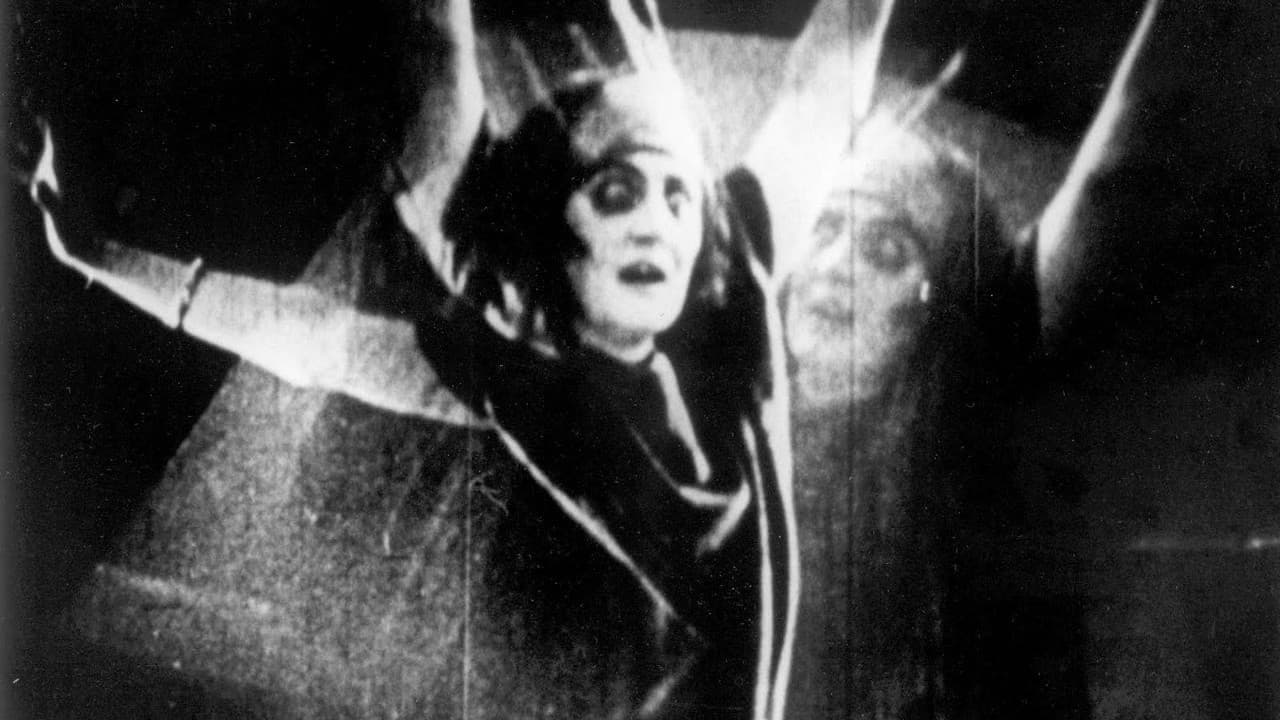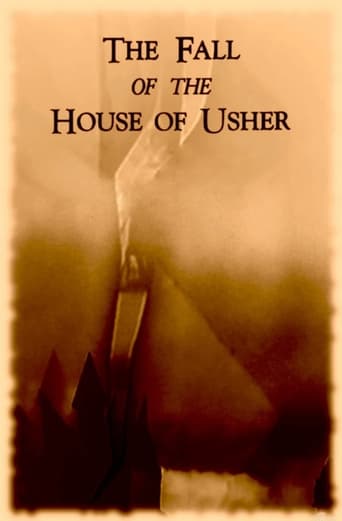

Watson's and Webber's "The Fall of the House of Usher" is not necessarily a film meant to be consumed as that particular form and medium, but actually a showcase of their technological experiments. At heart, it is a straight-forward German Expressionist film: stage quality is emphasized, enormous love of chiaroscuro, and both set design and costume is marked by sharp black and white contrast. The two add to the effect by dislocating the viewer through the use of split-screens, prisms, and elliptical editing, effects that were popular among experimentalists of the silent era, but which unfortunately did not find popular response enough to turn into a normal mode of representation today--which is unfortunate because it does fit well into the Gothic style of horror Edgar Allen Poe is most famous for, and because Watson and Webber were both involved with poetry and were basically making a quite poetic cinematic form. The best I can tell, cinepoems died soon after the coming of sound, once dialog helped reinforce the desire in most audiences to really understand characters and narrative plots and stylistic explorations became special effects. However, the fascination with the fragmentation of reality (even Gothicly or Romantically) persisted in underground film-making, eventually leading the way to the likes of Maya Deren and Stan Brakhage. And of course, it's still fascinating to watch today.--PolarisDiB
... View MoreThe Fall of the House of Usher has suffered a rather bad fate as a film, due to numerous problems.Not due to the fact that it's a bad film, on the contrary, but due to it's name. In the same year there was also a french full-length with the same name by Jean Epstein. And there are countless other recreations of this of the Fall in the House of Usher story.This film succeeds as a silent short expressed mostly through visuals and mood. It's not so much horror as it as an excuse to show surrealist images of words floating, off camera angles and general dillusion.The only thing that may put people off about this short is that it's clearly more about lush enchanting visuals then it is as a good representation on the Edgar Allan Poe piece.This is a fine silent short, and is highly recommended to fans of early silent expressionist cinema.
... View MoreThis unusual and memorable movie version of Poe's "The Fall of the House of Usher" has some creative details, and although it is one of the more obscure versions of the story, it offers a distinctive look at a couple of its many interesting aspects. The style is deliberately murky, and it has not so much as an inter-title, so that you do need to know at least the basic plot in order to understand what is happening.The original story is psychologically provocative and often uncomfortable, even by Poe's usual standards, and this adaptation is pretty successful in using symbolism and visual images to bring out various aspects of the mental disorientation and dread that the characters struggle with. You can watch it a couple of times and still notice new details that the film-makers inserted at various points. It focuses particularly on the peculiarly complex relationship between Roderick and Madeline, with the narrator of the original story much less prominent here.Poe's fascinating short story has been the source for many different movie versions, and Jean Epstein made a particularly good one in the same year as this feature. This Watson/Webber version, with its short length and its avant-garde approach, is hard to compare with the full-length versions. For what it tries to do, though, it works pretty well.
... View MoreAs a devotee of vintage horror and silent era in particular this should have been meat and drink to me. With a feature being released at the same time, commercialism was not one of the movie's flaws, but the reduction of the Poe tale to a vignette of a little over 10 minutes is woeful.
... View More